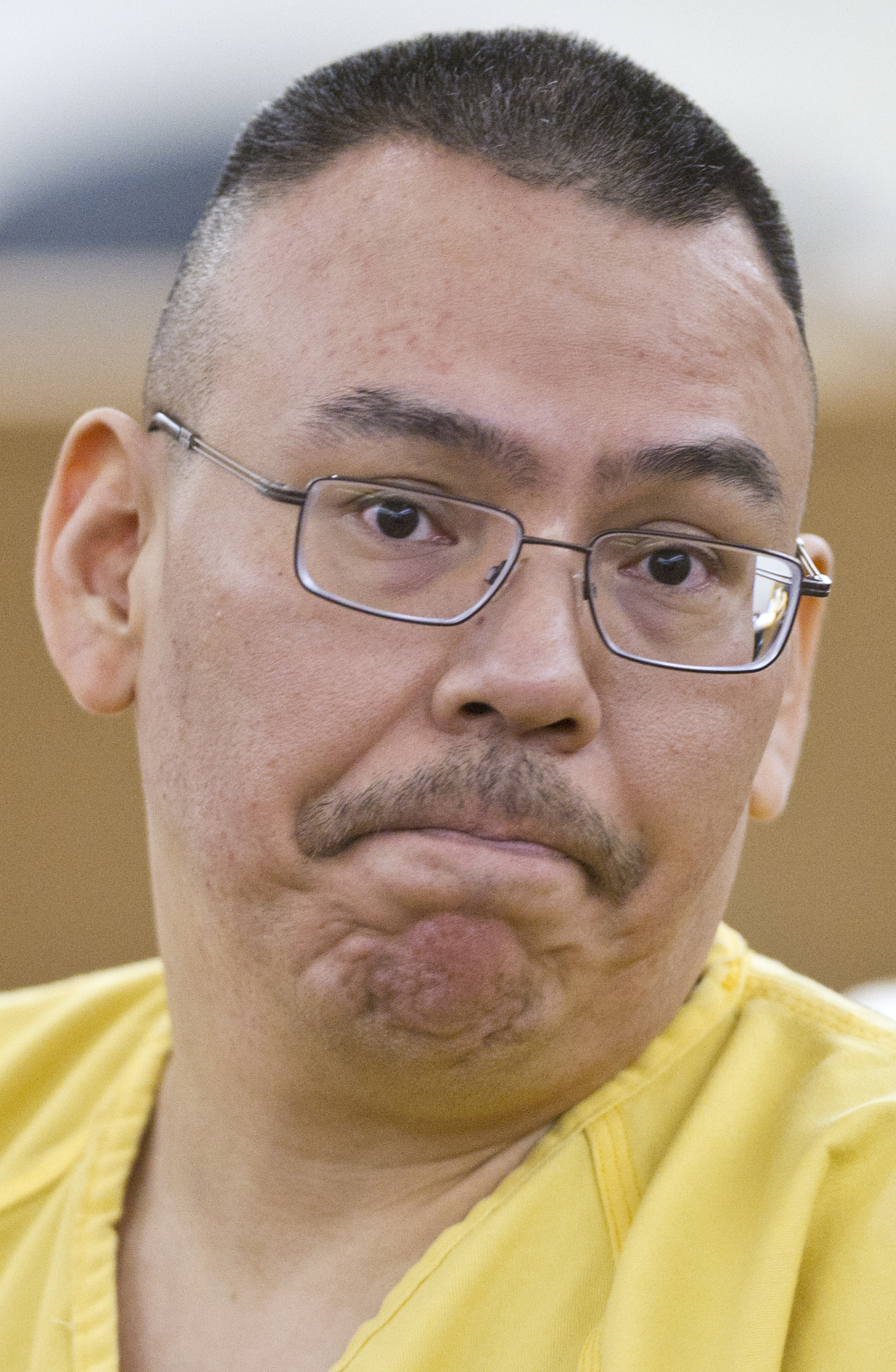Almost a decade after his original arrest, Thomas Jack Jr.’s court case still isn’t finished.
In 2016, Juneau Superior Court Judge Philip Pallenberg sentenced Jack to 40 years in prison after a jury found Jack, who turns 42 today, guilty on six felony counts of sexually assaulting his 11-year-old foster daughter.
During his sentencing hearing on Jan. 10, 2017, Jack requested that a statewide panel of judges review his case. Pallenberg granted that request, mainly on the grounds that a similar case, Collins v. State of Alaska in 2012, gave him enough reasoning to refer the case to the panel.
On Monday, the judges — Fairbanks Superior Court Judge Michael McConahy, Kenai Superior Court Judge Anna Moran and Ketchikan Superior Court Judge Trevor Stephens — sent the case right back to Pallenberg, saying they didn’t agree that the case applied to Jack’s case.
Both District Attorney Angie Kemp and defense attorney Richard Payne will now have to await Pallenberg’s next move, which will be either uphold Jack’s sentence or to find another reason to send the case back to the three-judge panel for review.
“It’s the case that never ends,” Kemp said Monday.
The judges, known as a three-judge panel, said they didn’t believe that Collins’ case applied to this current case, in part because the Collins ruling occurred in 2012, which was four years after Jack’s offense in October 2008.
The origin of the Collins ruling reaches back to before Jack’s offense. In 2006, the Alaska Legislature increased sentence lengths for sexual assaults because of the presumption that if someone is guilty of one sexual assault, he or she has likely committed other unreported assaults. In the Collins case in 2012, the Alaska Supreme Court ruled that courts could not make this presumption.
Within months, the Legislature overturned that ruling and amended Alaska Statute 12.55.165 to state that a court could only refer a case to a three-judge panel (such as the one gathered Monday) if a sexual assault defendant has an “extraordinary” chance for rehabilitation or if the defendant does not have a history of sexual offenses.
Kemp said the judges didn’t reveal all their reasoning for saying that the Collins case didn’t apply.
“I don’t know what Judge Pallenberg’s going to do,” Kemp said, “and we’re all on the edge of our seats.”
The three-judge panel could then make its own ruling on Jack’s sentence, either cutting the sentence in half or extending it to the maximum possible sentence of 99 years. Both the Alaska Court of Appeals and the Alaska Supreme Court declined to hear the case.
Jack was arrested in 2009 and the Juneau jury in his initial trial in February 2010 did not reach a verdict. After a second trial in July 2010, he was found guilty on all but one count of first-degree sexual abuse of a minor.
The case sparked a division in the small village of Hoonah where the offense took place, and gained a statewide audience when news broke that then-Rep. Cathy Muñoz, R-Juneau had sent a letter to Pallenberg, asking him to consider a lighter sentence for Jack.
Stephens, who did most of the talking for the three-judge panel, said Monday that Pallenberg didn’t state that he felt Jack had an extraordinary chance at rehabilitation when he referred the case to the panel of judges.
“And so, does that mean we’re done because there is no basis for referral at this point,” Stephens asked hypothetically, “or can we still give the parties to present an argument and whatever evidence you might have?”
Those involved in the case will have to wait for that answer a little longer, just as they’ve waited almost 10 years for the case to be resolved.
• Contact reporter Alex McCarthy at 523-2271 or alex.mccarthy@juneauempire.com. Follow him on Twitter at @akmccarthy.

